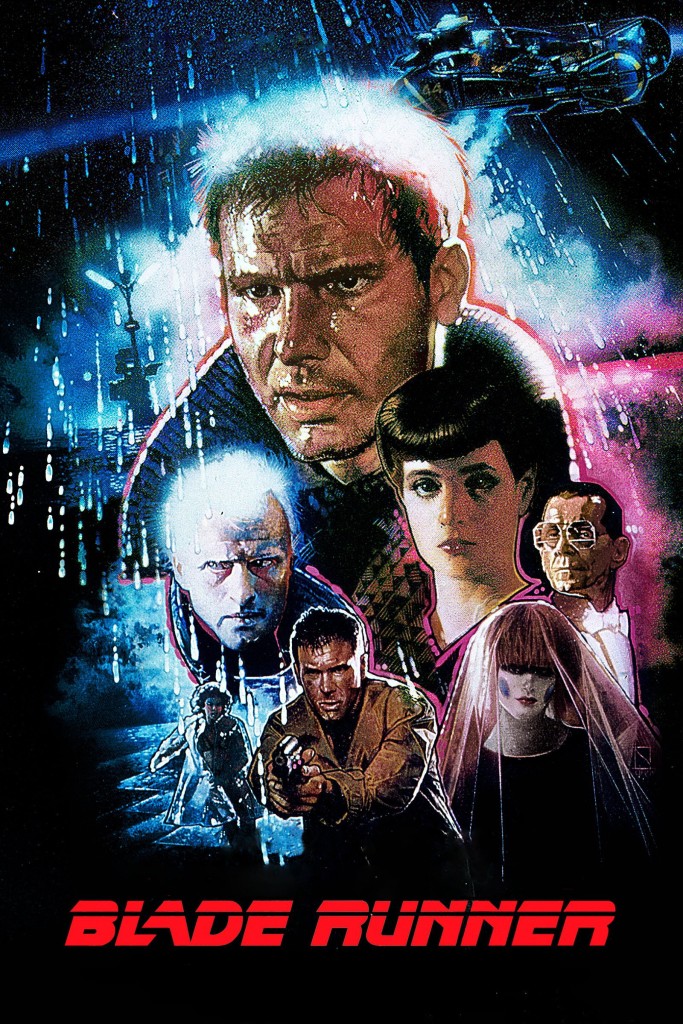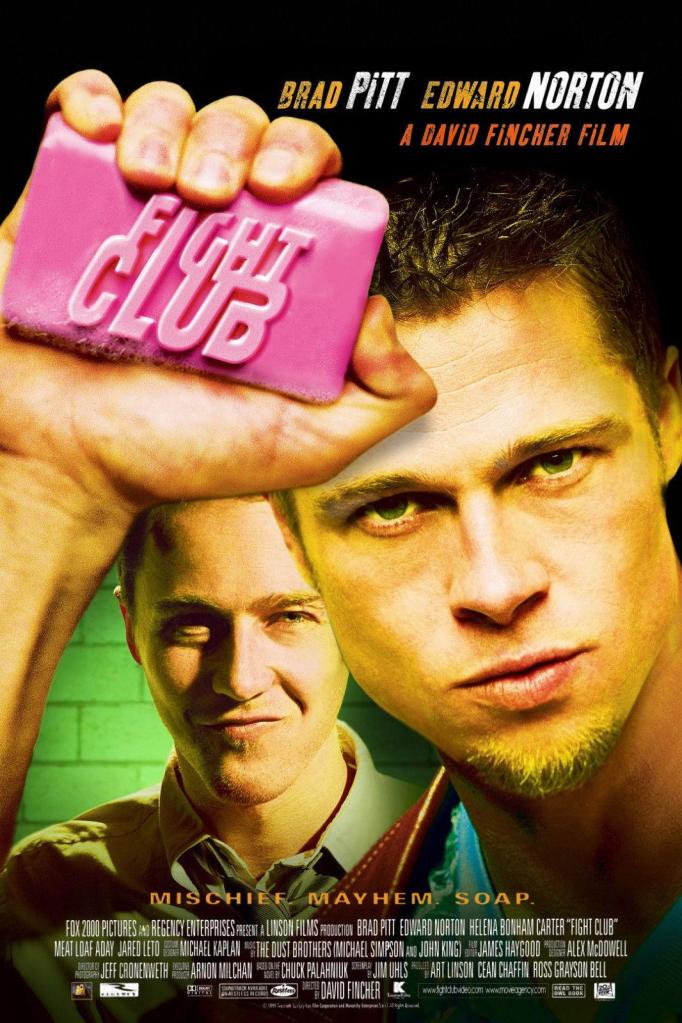So, this isn’t going to be much of a list because, honestly, I don’t watch enough movies to write an extended (or particularly insightful) blog on the subject. My experience tells me that the books are nearly always better, but that could just reflect the fact that I usually read good books and only catch bad movies.
It’s probably because of how much I love to read that when I do come across a movie that goes beyond the page, it really sticks in my head.
Anyway… here’s 5 of the best.
Blade Runner (Ridley Scott)


Is Blade Runner the best Sci-Fi movie ever? – Gosh, now that’s a big question; I can’t honestly think of a better movie in the genre, and I absolutely can’t think of any Science Fiction movie more timeless.
As a genre, Sci-Fi tends to age rather badly, mostly due to the tricky nature of making predictions about technological advancement. Back to the Future… (another all-time great of the genre) predicts both face-timing and flying cars being around by this age (while completely missing the fact that an elderly single-man maintaining such a close personal relationship with a 17-year-old boy would seem very strange). Issac Asimov (maybe the best Sci-Fi writer) made be a series of predictions back in the 1960s, which are well worth checking out some time (they’re kind of mind-blowing honestly).
Blade Runner, despite its predictions about a future now past (flying cars again), has aged like fine wine because the story, characters and general direction are so compelling. The movie draws you so deeply into the story that the mind just adapts to the reality of the screen as it is presented.
Why is the movie better than the book:? – Well, it just captures your imagination in a way Do Androids Dream of Electric Sheep doesn’t. The plot of the movie is vastly changed too and has a lot more action in it, and it’s more relatable (which is a weird thought, given the plot of the movie, but I’ll stick by it).
Fight Club (David Fincher)


When the movie came out, there was a lot of controversy about Fight Club, and to this day, I’ve never really understood why. Yes, there are glorified scenes of violence throughout, and the film deals with darker aspects of human nature, but that is exactly the point.
The movie is all about denial, neglect and repression, and the dangers of embracing them.
Anyway… thoughts like that are way too big for my little blog, so I’ll stick to what I understand about the writing.
I would never go as far as to say that Fight Club is a great book, but it is a very good one with some truly great parts scattered throughout (the rules of Fight Club have gone far beyond the page), and the movie adaptation increases the potency of the whole story.
Why is the movie better than the book? – Well, the directing is top-notch; the book feels like it takes place in darkness, and David Fincher captures that superbly. What really pushes the movie ahead is the principal cast; Edward Norton and Brad Pitt are excellent, while Helena Bonham Carter steals the show with her portrayal of Marla Singer; she’s the reason why I’m sure that everyone who has watched Fight Club has watched it at least twice.
Layer Cake (Matthew Vaughan)


Before Daniel Craig played James Bond, he was a man with no name who made his money dealing cocaine. As modern crime/gangster movies go, Layer Cake is pretty good. It’s sleek, the cast all turn up and do more than just punch in their time cards, and there’s just a classy feel to the way it’s shot and cut (the movie opens with this helicopter shot, with She Sells Sanctuary by The Cult blasting out, which really sets the tone).
The movie isn’t a classic by any means, but if you were stuck channel hopping on your TV, you could do a lot worse.
Why is the movie better than the book? – Well, the book isn’t very good. J.J. Connolly actually wrote the movie adaptation himself, and to his credit, I think he managed to improve the story by correcting some of the bigger failings of the novel.
Trainspotting (Danny Boyle)


I suppose that if you’re reading this blog having read Trainspotting, you’re probably thinking ‘Blasphemy!’ – and you’d have a fine point because the novel is really bloody good. It’s original, cutting and written in a vernacular that will either make or break the reading experience (which takes incredible talent and confidence).
The movie though… well, it’s also really bloody good, and like Fight Club, the great casting just gives it a little bit more juice. Perhaps part of that is the accents, and hearing the words sounded out correctly, rather than just your best appreciation within your mind’s eye, which is always a challenge when you’re not from the part of the world where a novel is set (Edinburgh, Scotland on this occasion).
I want to say the soundtrack is brilliant too, but truthfully all I remember of it is Lust For Life (Iggy Pop), but I’d argue that’s enough because the scene that accompanies it must be one of the most iconic in British cinema (the Choose Life… speech is straight from the page if you haven’t yet read the novel).
Why is the movie better than the book? – Well, I mean they are both greats, and very similar on the key points. What I’d suggest makes the movie (very slightly) better is Robert Carlye’s portrayal of Frank Begbie; I’ve always felt that in the follow-up novels, the character has mutated to feel more like the one from the movie, rather than directly following on from the man in the novel. Perhaps that difference is only in my head, but even that would lend my casting vote to the movie because it is good enough to influence my opinion on such a fundamental level.
The Bourne Identity (Doug Liman)


Ok, the film is decent, but we’re not discussing an Oscar winner here (should such a thing be considered desirable). Credit where it’s due though, The Bourne Identity, did seem to bring about an evolution of the super spy saves the world idea (or perhaps it just the blockbuster that crested that particular wave – I’m honestly not well enough informed).
It reintroduced the necessity for keeping one foot firmly planted within the art of the possible, and there isn’t a gadget in sight.
Why is the movie better than the book? – Well, once again, the books just aren’t that great. Yes, they were written in a different time (during the Cold War) and in a style to attract fans of the Bond movies, but honestly, I couldn’t get past the poor writing and ludicrous bad guy.
I think there’s something rather poetic, however, in that the success of the subsequent movies actually was the catalyst behind an evolution in the Bond franchise.
(I don’t like to leave off on a bad note when I can avoid it, and would like to express that I’ve enjoyed a good few Robert Ludlum books – like, they’re a fun, not world beaters – it’s just this particular series that I think is awful, and I wouldn’t be at all surprised if we saw a Covert-One franchise one day)
Just a few final thoughts
Philip K. Dick: I singled out Blade Runner because it’s a masterpiece, but quite honestly, every PKD adaption is better than the source story (even when the respective movies aren’t very good). Personally, I think it was his style of writing that was just better suited to the screen. Perhaps if he’d been born 50 years later, we’d now be discussing him as one of the great Fant/Sci screenwriters.
James Bond: the films are a phenomenon (even though their quality ranges from the sublime to the ridiculous), while the books are hardly ever spoken of; the question though is whether the movies better? – Quite frankly, I don’t ever recall meeting another reader who has read a James Bond novel. I’ve read two myself, Thunderball (which, frankly, I have no memory of) and The Man with the Golden Gun (which I only remember because it was bloody awful). I can’t really say that I know the films are better, but I’m sure there’s a reason the books are mostly forgotten, while the movie franchise has already lived a lifetime.
Marvel Cinematic Universe: I really just don’t know enough about the source material (or medium) to make any comment on whether the films are better. I’m sure their wild success has boosted interest in the comics books/graphic novels, which can only be a good thing, but the only adaptions I’ve seen (Watchmen, Hellblazer, The League of Extraordinary Gentlemen) where I know the source material well, really don’t even deserve to mentioned in the same sentence as the comics. Perhaps that isn’t true of the MCU, I really don’t know.